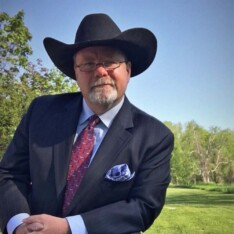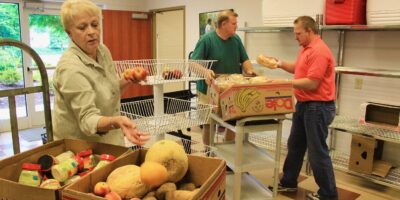The Internet Is No Substitute for Real Life
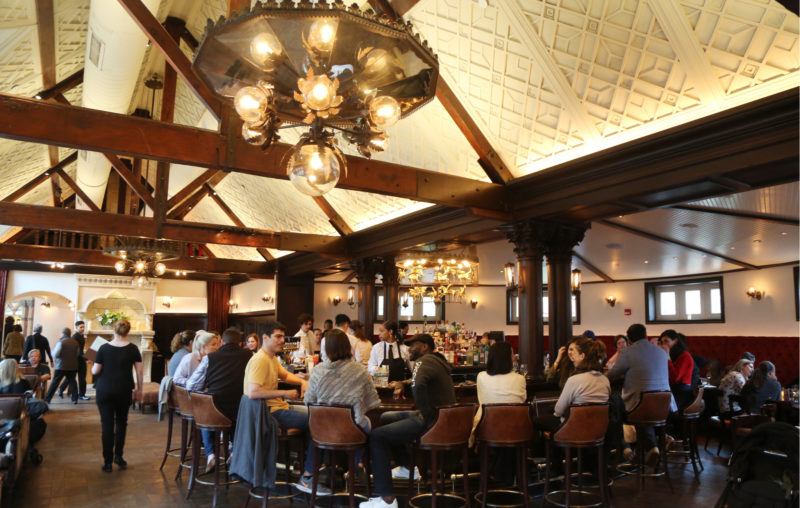
I am not one who cries easily. My wife had to inform me that the ending to Old Yeller was not a comedy. Nonetheless, when word came down via social media that the Duvall Tavern was reopening after a three-month hiatus, tears welled up in my eyes, immediately and involuntarily.
The Duvall Tavern is a pub and restaurant in a small town just northeast of Seattle. It seats a maximum capacity of about 60 indoors, and probably 90 when the patio opens in summer. The owners offer up a dozen craft and mass-produced beers, a standard liquor selection, and basic bar fare with some unique dishes rotated weekly.
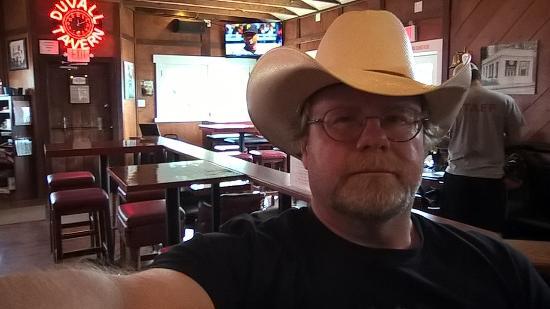
But more than a building with food service, the Tavern is a gathering place. It is where I go to meet good friends, see infrequent acquaintances, and make new connections. In other words, the Tavern represents not just a commercial enterprise, but a social institution, and a vital one at that.
As we slowly begin to reopen after months of draconian lockdowns on commerce, economists are focusing their attention on the narrow economic indicators of employment, profit rates, and capital stock (both human and physical). But there is something they are missing – the social capital that stay-at-home orders helped destroy. This cannot be emphasized enough.
Social capital is comprised of all the interactions we have with one another, both big and small, and the knowledge and understanding about people around us that those interactions generate. Adam Smith famously talked about our human propensity to truck, barter, and exchange, but we also have the proclivity to chat, celebrate, and commune. We do this in backyards, at parks, around the water cooler, at sporting events, after religious services, and … yes … at the Duvall Tavern.
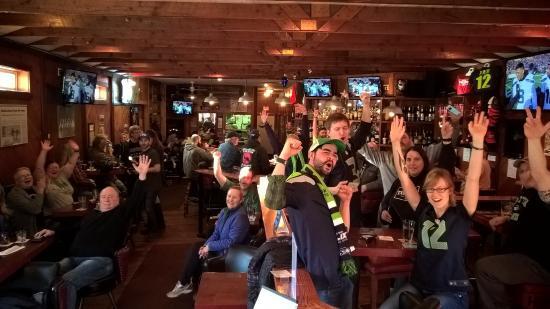
A flourishing economy needs a healthy dose of social capital. As Peter Boettke, Zachary Caceres, and Adam Martin point out, the economy is a cooperative endeavor writ large, one that emerges via the voluntary agreements of billions of tiny interactions. While Econ 101 classes extol the importance of market competition, commercial activity cannot occur without a strong social fabric that promotes cooperation and trust among individuals.
Uncertainty about the intentions of others, whether they intend to engage honestly or plan to cheat, is ubiquitous in large-scale economies that rely upon anonymous and quasi-anonymous trade. But the social learning embedded in institutions that promote even small-scale human interactions help to alleviate uncertainty, build trust, and expand trade.
Sociologists have talked about social capital in two forms – bridging and bonding. The latter (bonding) manifests itself in the tight relations formed with individuals that you are in constant contact with – family members, work colleagues, and lifelong friends. These are the several dozen people that you know will be at your funeral.
Bridging social capital, alternatively, represents the weaker relations that we have with one another. It represents the couple at the bar that you might see every other week and talk about football. Or it could be the bakery owner who you visit every few days to buy a coffee and pastry on the way to work.
Your first visit to the bakery probably occurred as the most sterile form of trade presented in Econ 101 textbooks – two dollars exchanged for coffee and a donut. But by the seventh trip, you are asking the baker about her kids, and she might be wondering why you weren’t around last Tuesday like you normally are. Neighborhood barbershops and salons are not just places that provide you with haircuts; they provide community space for all sorts of social interactions.
The “idle chit chat” that occurs in these places is the thread necessary for weaving our social fabric. These may not be your closest friends, but they are friendly faces that you begin to care about, trust, and have empathy for. These are the folks you hope will come to your funeral, or at least have a sad pause knowing you have passed.
And while deep bonding capital is often what we long for most, it is the bridging capital that often gets us there. Bridging capital is about discovery. It is about learning one thing about a new person, finding points of common interest, and then expanding those relationships.
Over the past three months, we’ve shut that down. No wonder the world seems more ominous. We don’t know who to trust because we can’t keep our faith alive in one another by being next to one another. The Internet, we are discovering, is no substitute.
A year or so ago at the Valley House Brewing Company, just down the road from the Duvall Tavern, I came upon some folks talking about cribbage (a card game). “I play cribbage, let’s play.” That spontaneous card game became a regular Tuesday gathering over the following months with different people showing up on different weeks. We played cards, drank beer, and talked about fishing, the craft brew industry, cars, and general town gossip.
The network expanded; we attended birthday parties; groups went out on crabbing expeditions and shared recipes; and I found somebody able to fix my home generator’s power cord. My life was better because there was a place to create and build social capital. There was a bridge that built bonds.
And then came the lockdown. We tried playing cards over the Internet. It was nice, but it wasn’t the same. When the smothering isolation of stay-at-home orders became overbearing after just two months, some of us started gathering surreptitiously at the local boat launch to drink beer out of red Solo cups. A couple of us even hugged when we saw each other “masked up” at the Family Grocer, social distancing be damned.
It’s not just taverns or breweries. It’s gymnasiums, houses of worship, parks, and academic conferences. I could easily exercise at home, and have been with the mini-gym that we constructed for ourselves. However, I genuinely miss the folks in fitness classes that I may only see two or three hours per week. These are not close friends, but they are important acquaintances that over time I’ve learned I can rely upon for assistance when needed.
More importantly, these “little” interactions reassure me that humans are pretty good people in general. We build social trust together. This occurs similarly after Sunday church services, at college football games, and music concerts. It can also happen when someone stumbles in drunk to a hotel bar and buys the conference organizers a round of top-shelf whiskey (true story, by the way).
Political economists have long studied how to foster cooperation within societies of self-interested strangers. The basic, rationalist game theory model of cooperation (i.e., the prisoners’ dilemma) posits that defection from cooperation is the equilibrium position. But scholars such as Robert Axelrod and others have discovered that repeated interactions, even among strangers, foster cooperation.
The “folk theorem” in economics shows that cooperation can emerge over time even if there are strong incentives to cheat. Continual interaction is the key. Typically, the folk theorem is presented with the same individuals engaging over an “infinite” period of moves. In reality, though, we live the folk theorem every day with differing individuals and in varying contexts. Some of those contexts may only be repeated a few times. Civil society, the arena of social capital, is nothing if not the folk theorem being played out on a massive scale.
Unfortunately, over the past three months, government policies dictating “stay-at-home” and to socially distance ourselves from one another have undermined all of this social capital, particularly the very delicate, yet crucially important, bridging capital. When we look to see how the economy recovers from the economic lockdown, we must not forget to pay particular attention to rebuilding the human relationships that were severed.
Remember that many commercial enterprises provide you not only with the goods and services you desire, but the vital space with which we all need to craft friendships, trust, and empathy. Without that, economies don’t function well. No supply-and-demand graph can ever capture that fully. You have to live it to believe it.
If and when your favorite tavern, gymnasium, barbershop, or coffee shop reopens, tell the owner and staff how much you missed them. Not just their products or services, but them. The “them” who give you the opportunity to connect with the community around you. A free market provides us with so much more than mere baubles; it continually builds the social relations we need to live more fulfilled lives. Critics of the free market who call capitalism heartless must be deaf to how loud our commercial system pumps blood through our civil society.
Truth be told, I actually did cry when Old Yeller crossed the rainbow bridge (spoiler alert). And I did get a little misty-eyed when writing these words. No doubt it is my longing for a whiskey and Tavern Burger, but also probably knowing that I will be seeing some old friends, casual acquaintances, and making new friends once again.

